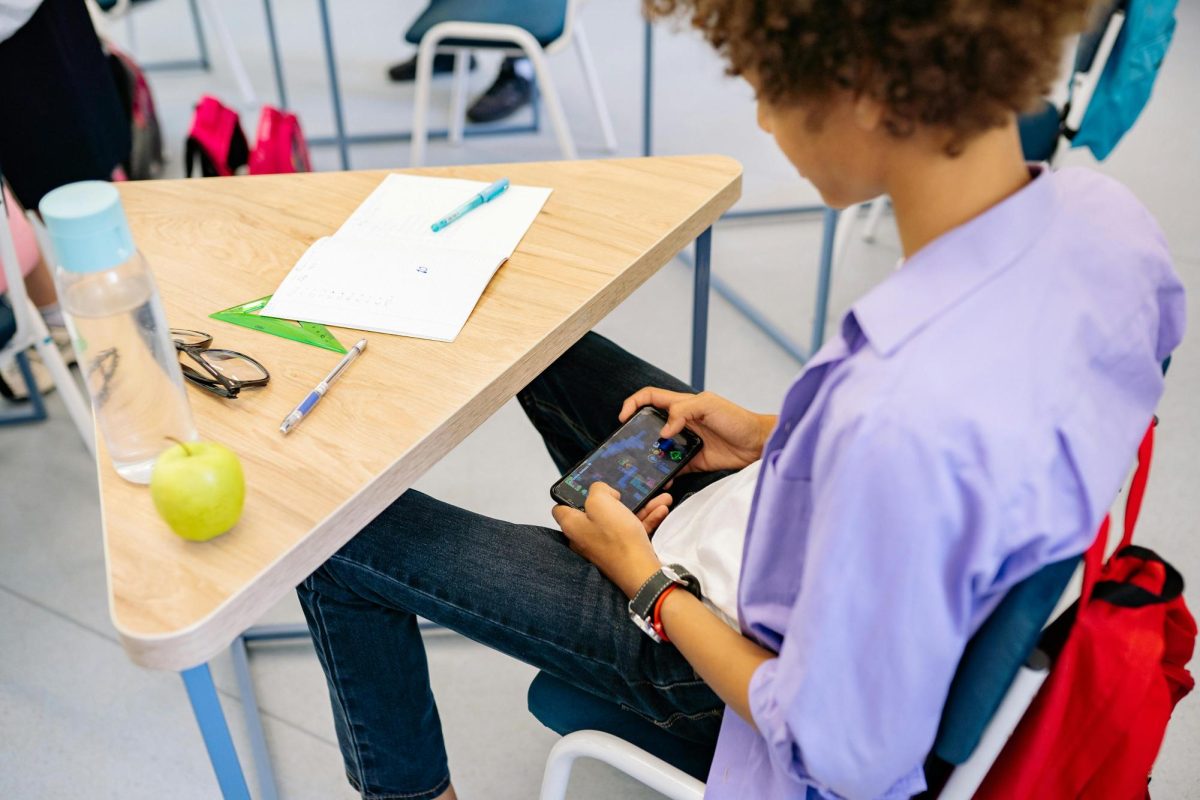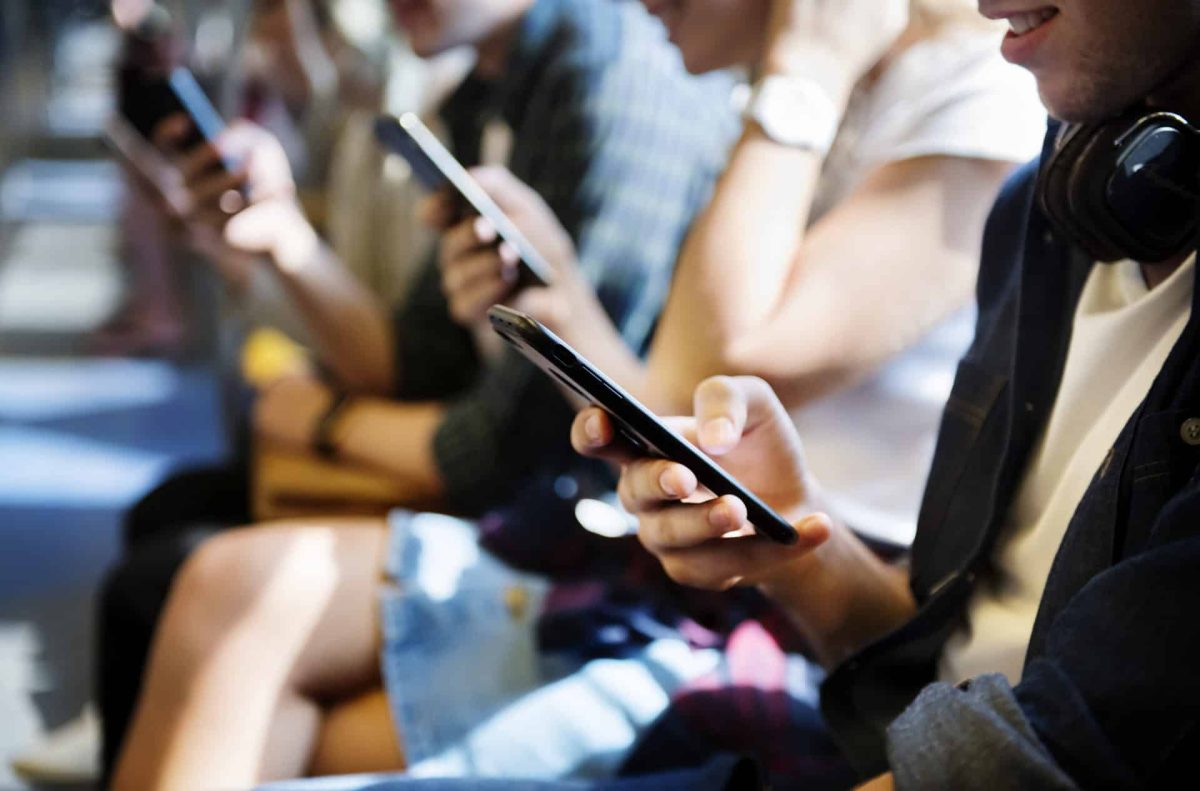The National Center for Education found in 2020 that 77% of schools in the U.S. placed a ban on cellphone use during school hours. Schools in Texas hopped on the ban as the public observes the effects of constant phone usage. The American Academy of Child & Adolescent Psychiatry states the average screen time for kids aged 13 is over six hours a day; in perspective, an average school day lasts eight hours, which shows that phones have a detrimental effect on students, not just in Texas, but worldwide as well.
By banning cell phones in schools, teachers moderate student internet safety, encourage participation in class activities and foster better mental health.
With the rapid increase of available technology, internet safety is an equally rapidly growing issue. On any cellular device, students have the ability to access anything at the tip of their fingers. Children are already exposed to a robust bias to believe what they are told, meaning that they are more impressionable to child predators, online scams or cyberbullying. The Oklahoma Legal Group stated that at least 20% of children have been targeted by predators. Parents can also take the initiative to limit the media their children consume by keeping a close eye on their children’s screen intake at home. Social media fosters cyberbullying, causing young girls to act as subjects to mental health issues, such as body dysmorphia and depression. Education Week stated that phone bans can ease students’ stress and decrease their anxiety, counteracting their use of social media as it can be toxic to their health. By the decrease of stress that phone bans foster, students can learn the effects their words and actions have on others both in the classroom and online. This allows students to be more mindful of their internet usage by creating safer environments.
Teacher-student relationships create opportunities for students they cannot have with their cell phones. Harvard University stated that device usage unrelated to a given lesson impedes a student’s academic performance. It also states that should a student be willing to shift their focus away from the distraction, they will do well again. By placing a ban, teachers encourage students to participate in class activities. This will bring their focus back to their teacher rather than text messages or games. Harvard continues that without distractions, students are more likely to respond to humor, games in class, and learning material. In the classroom, phone usage is also a sign of disrespect to teachers. Observed by teachers, phones show that a student isn’t listening and would much rather focus on a text message or mobile game. On top of this, if schools continue to allow students to use cell phones during class, they will resort to becoming creative by hiding them behind books, laptops, under the desk, or on their laps. By setting in stone a clear policy banning the use of phones altogether, students have a more focused environment to learn and retain information.
Phones can also be a distraction to a student’s physical and mental health. Massachusetts General Hospital states phone usage not only disrupts sleep schedules but also a sense of surroundings. CBS follows this by asserting that five teen pedestrians are killed every week because of their inability to see oncoming traffic hindered by cell phone usage. Columbia School of Psychiatry states that constant phone usage can create anxiety within students, causing them to feel intense strings of FOMO (Fear of Missing Out). On top of this, social media studies prove a correlation between depression and increased stress when a student consumes higher amounts of media. However, students can show signs of empathy burnout, where they begin losing empathetic feelings towards others. Even with empathic burnout and FOMO, phones still dominate student’s lives.
Students should have access to their phones in emergency situations, some believe it doesn’t teach students how to use phones responsibly. The very use of cell phones in class is a highly debated topic because solutions to the problem don’t attempt to fix the issue. Students are expected to learn the effects of how constant phone usage affects their ability to focus outside of school as well.As students often use their phones for countless activities such as learning tools and organization, there are other options for both. Teachers must be able to define the line between acceptable phone usage in class and unacceptable phone usage. By defining a clear definition of acceptable phone communication in class, the problem of phones becomes a rather less touchy subject. Teachers must also limit themselves to phone usage in class. Phones in classrooms can periodically be a distraction, but in emergency situations phones do not guarantee immeasurable safety.
With phone bans in schools increasing across the country, it is important to understand their true effects and how people become desensitized by the usage of phones. As technology rapidly becomes smarter, phones become harder to put down. In the end, phones to children are a distraction and that is a message that must be texted long and far.









